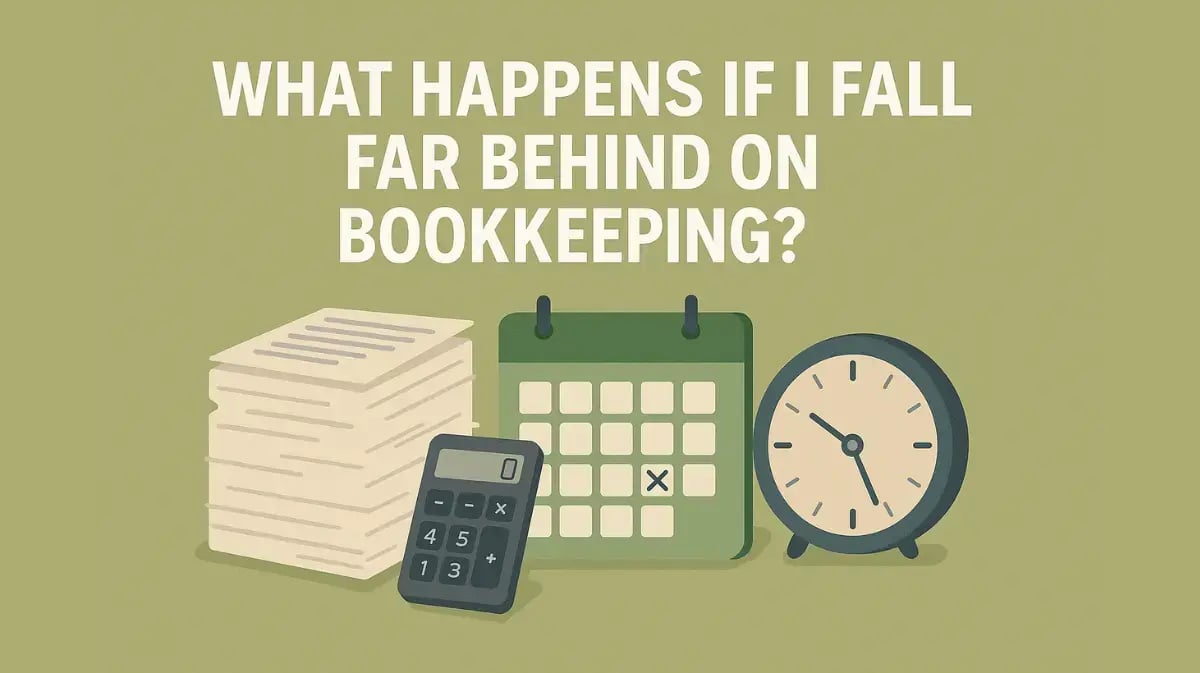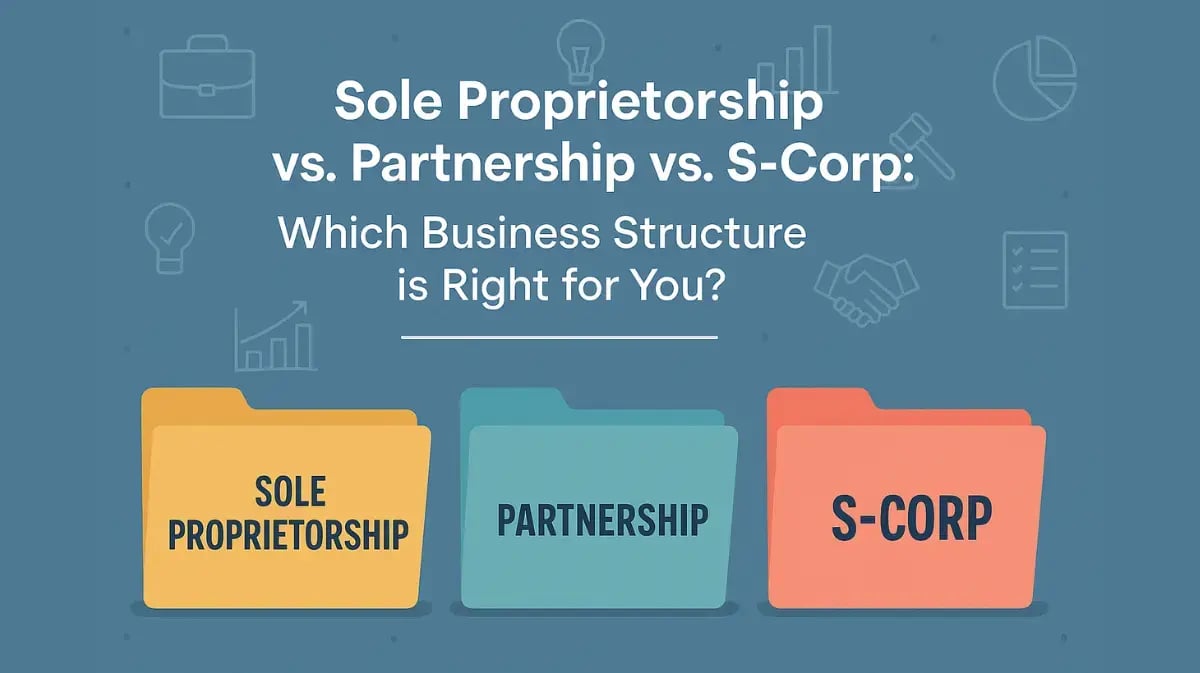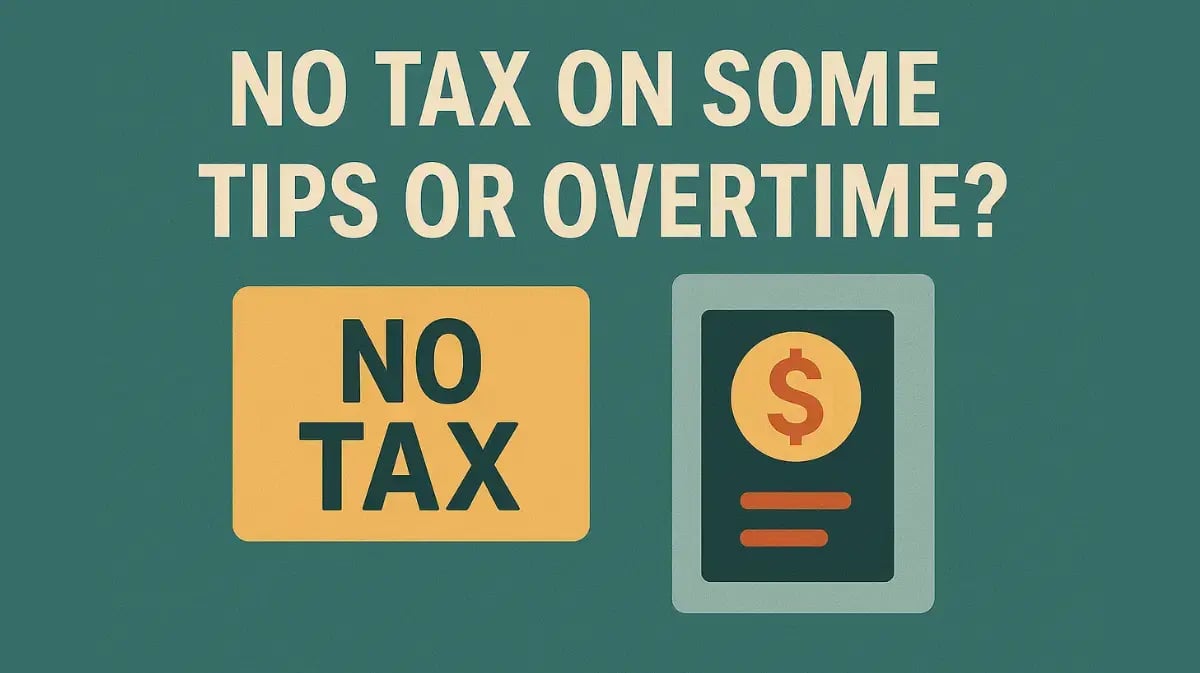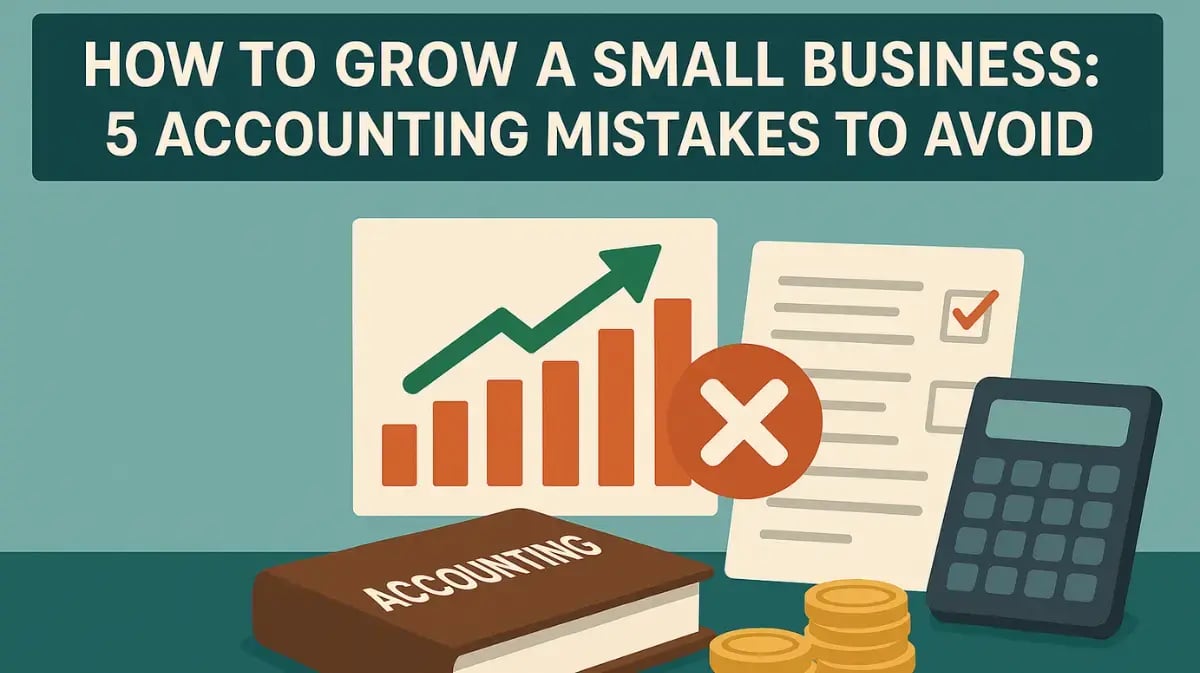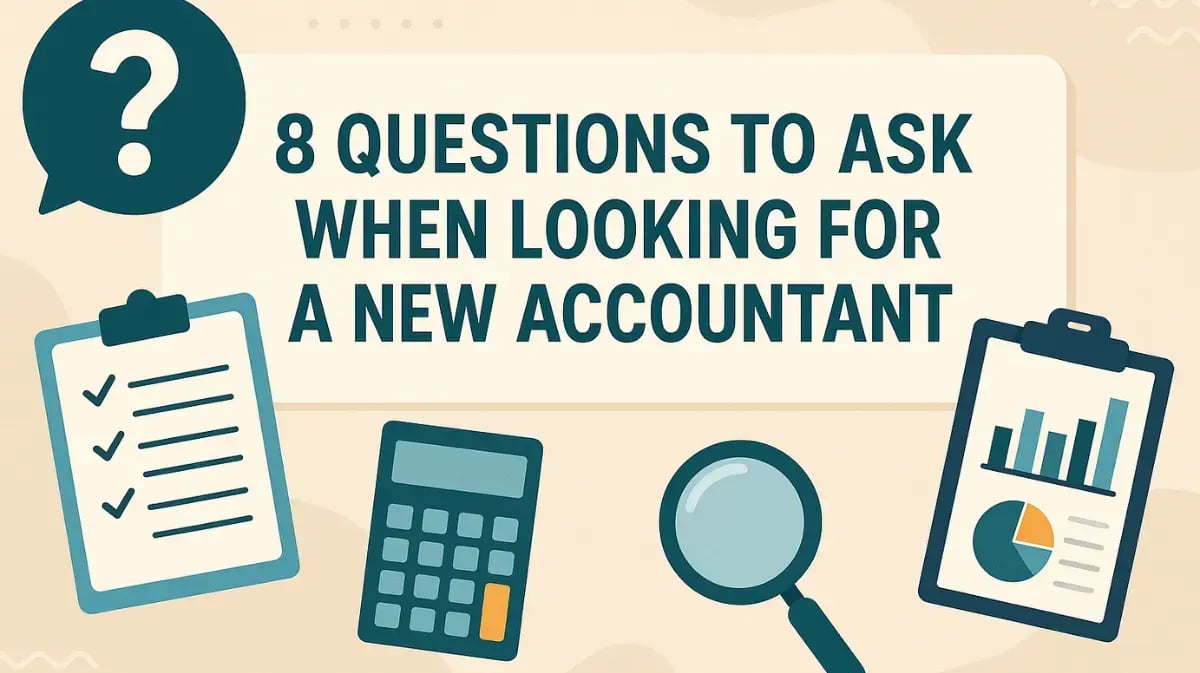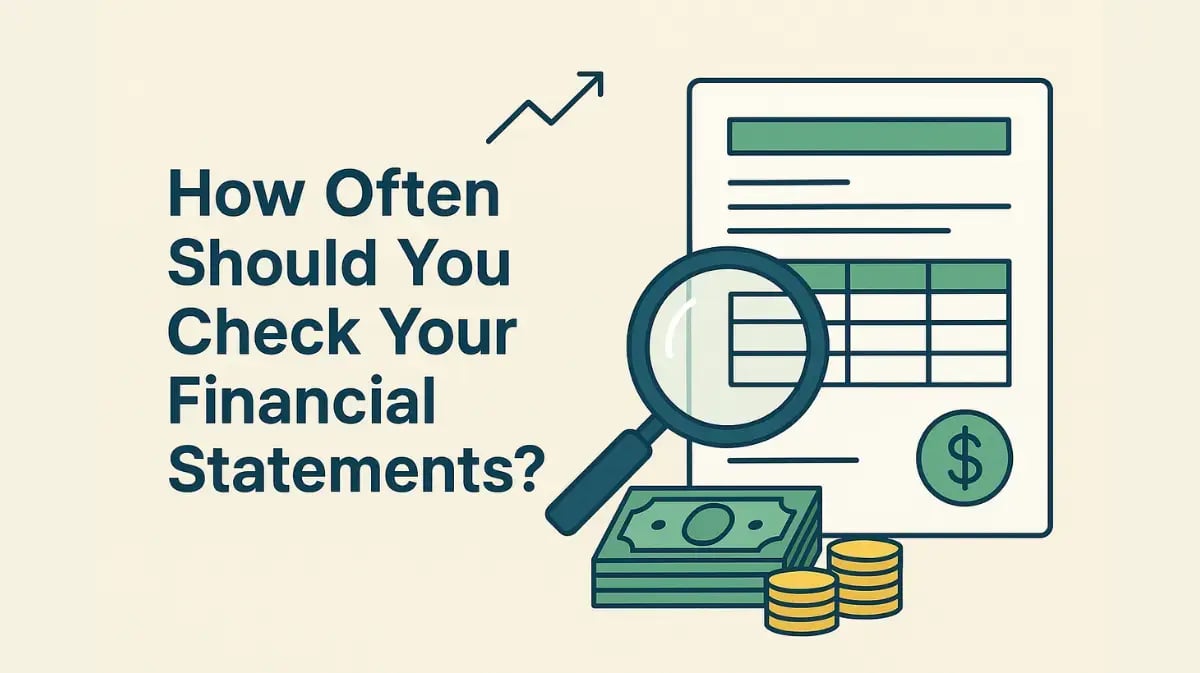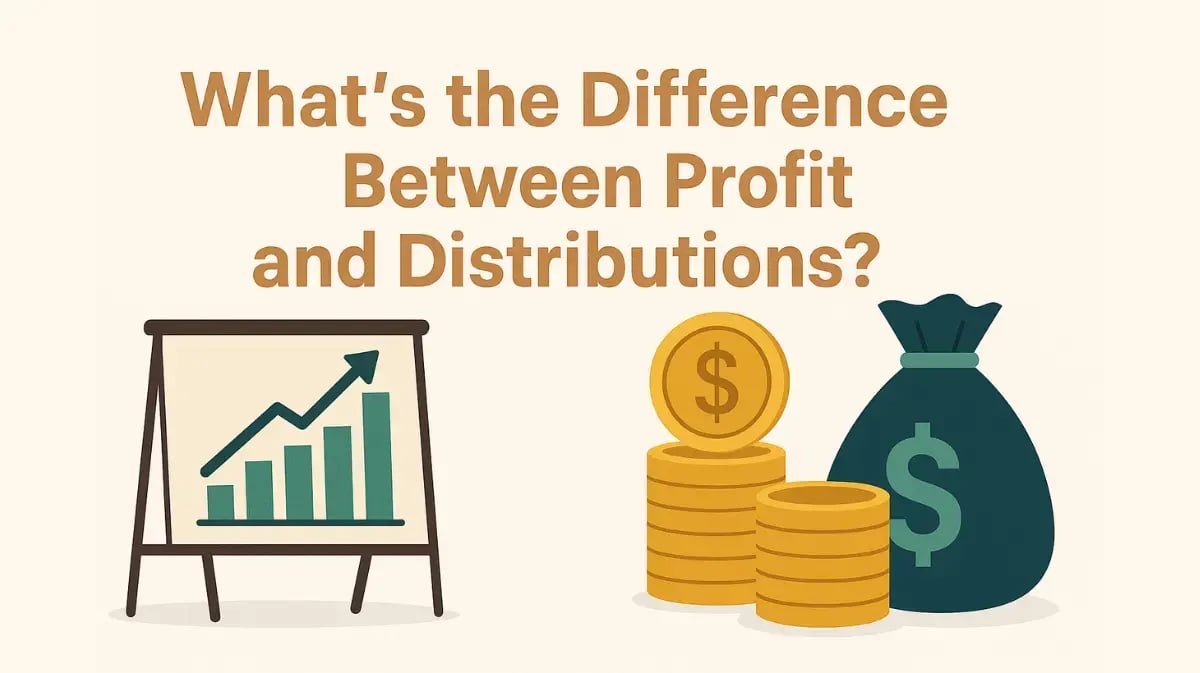Top 5 Questions Smart Business Owners Ask Their Accountants
July 30th, 2025
6 min read
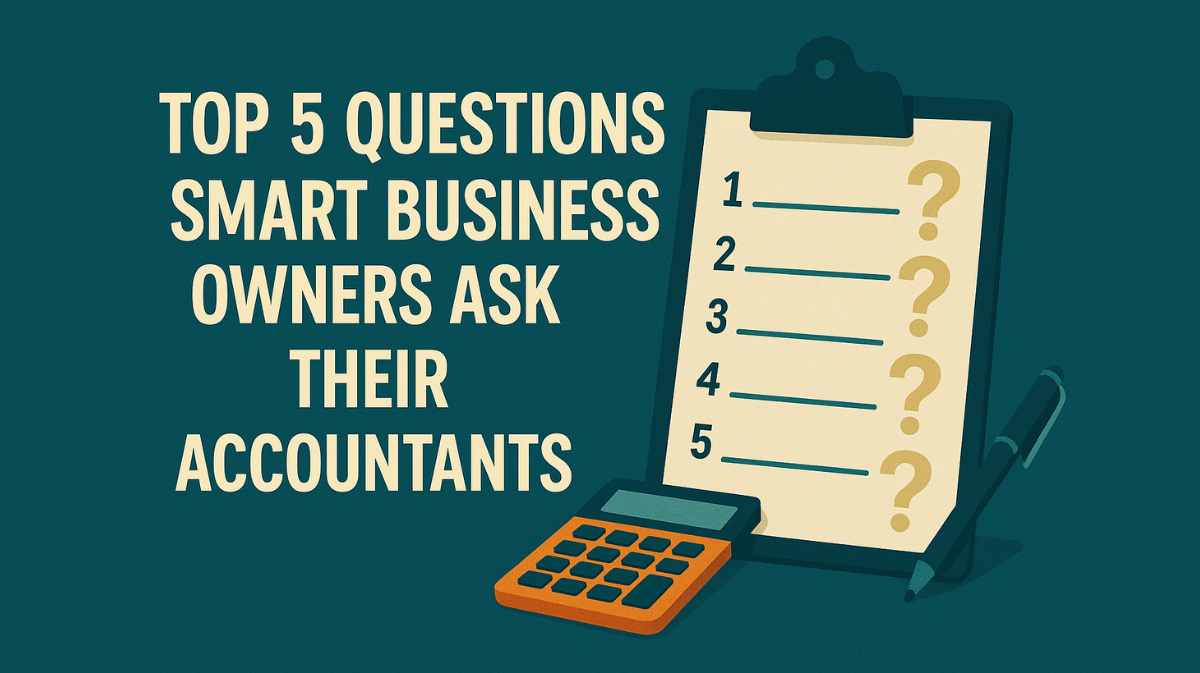
As a business owner, you already wear too many hats. One minute you're solving staffing issues, and the next you're figuring out how to keep the cash flowing. You're juggling customer needs, employee demands, and your own ambition to grow—all while trying not to drown in paperwork or surprise expenses.
Sound familiar?
Running a small business is complex. And let’s face it—most of us didn’t start our business because we love tax law or reconciling bank statements. However, the financial side can't be ignored if you want to build a successful business.
Here’s the good news: you don’t have to do it alone.
Smart business owners know their accountant isn’t just there to file taxes. A great accountant is a guide—someone who helps you avoid costly mistakes, uncover savings, and make confident decisions. And often, the difference between average support and exceptional advice comes down to the questions you ask.
Better questions lead to better answers—and better outcomes.
Whether you want to save on taxes or just gain peace of mind, the right conversation can make all the difference.
So, what should you be asking?
Let’s dive into five of the smartest questions every business owner should ask their accountant.
The Hidden Value of Asking the Right Questions
Ever felt like your accountant is speaking another language? Or do you only hear from them before your tax return is due? You’re not alone.
Too many small business owners feel left in the dark, getting vague advice, surprise tax bills, or worse, silence until it's too late to fix anything. That kind of reactive approach leads to unnecessary stress, rushed decisions, and missed opportunities.
But here’s the difference: the most successful business owners approach their accountant as an ally, not just someone who files paperwork and tells them what they owe. They ask questions that look forward, not backward.
Instead of asking, “How much do I owe?” they ask, “How can I plan better?”
Instead of scrambling at year-end, they’re making smart moves year-round.
And the best part? You don’t need a finance degree to ask better questions. You just need to know what to ask—and be willing to start the conversation.
Here’s how.
The 5 Smartest Questions You Should Be Asking
1. What’s the best way to structure my business for tax efficiency?
Choosing the right legal structure for your business—like Sole Proprietorship, LLC, S Corporation, or C Corporation—has a big impact on how much you pay in taxes, how you pay yourself, how profits are handled, and how well your personal assets are protected.
Here’s a quick breakdown of the most common options:
- Sole Proprietorships are the simplest to start and maintain, but they don’t separate your business and personal finances. That means you’re personally liable for business debts, and you’ll likely pay higher self-employment taxes on all your income.
- Limited Liability Companies (LLCs) offer a layer of legal protection and more flexibility. Profits “pass through” to your personal tax return, and you’ll still pay self-employment tax—but you have more options when it comes to how you’re taxed and how you grow.
- S Corporations (S Corps) require more paperwork but can offer significant tax savings. Once you pay yourself a “reasonable salary” through payroll (with payroll taxes), any additional profits can be distributed and may not be subject to self-employment tax.
- C Corporations (C Corps) are taxed separately from their owners, which means the business pays corporate income tax on profits, and owners pay tax again when taking dividends. While that sounds like double taxation, C Corps can still be a smart fit for businesses planning to reinvest profits or raise outside capital.
Each option comes with trade-offs—what saves you money today might cost you flexibility down the road, or vice versa.
That’s why discussing the short-term and long-term implications with your accountant is crucial. A 30-minute conversation today could save you thousands in taxes, legal fees, or restructuring costs later, and make key milestones like hiring, succession planning, or selling your business much smoother.
2. Are there any tax deductions or credits I’m missing out on?
This is one of the most valuable questions you can ask—and it can unlock real, bottom-line savings.
Many business owners leave money on the table simply because they’re unaware of the tax benefits available to them. Others may have heard of certain deductions but aren’t sure if they qualify, or they miss the window to claim them. That’s where a proactive accountant can make a big difference.
Here are a few examples of what you might be missing:
- R&D (Research & Development) Tax Credit: This credit isn’t just for tech companies. You might qualify if your business spends time or money improving products, services, systems, or software—even internally. Think process improvements in manufacturing, prototyping, or custom-built solutions for clients.
- Energy-Efficient Upgrades: If your business invested in energy-saving appliances, vehicles, HVAC systems, or even solar panels, you could qualify for federal or state credits. These incentives can significantly reduce the cost of going green.
- Section 179 Deduction: This lets you deduct the full purchase price of qualifying equipment or software bought or financed during the year. It's especially helpful for businesses investing in machinery, office furniture, or technology.
- Industry-Specific Deductions: Are you a restaurant owner buying uniforms and kitchen supplies? A medical practice investing in new imaging equipment? A contractor using tools and a home office? Each industry has common (and commonly missed) deductions.
The tax code is full of opportunities—but it’s not built to be user-friendly. That’s why it pays to work with an accountant who stays curious, pays attention to details, and understands what applies to your business.
Don’t wait until year-end to ask this. Some deductions and credits require planning or timely documentation.
Bottom line? Don’t leave free money on the table. Ask your accountant to do a thorough review—and make sure you’re getting credit for all the ways you’re investing in your business.
3. What’s your process for helping clients plan for tax season throughout the year?
Too many accountants operate in “April mode”—they swoop in at tax time, crunch the numbers, and tell you what you owe. By that point, your options are limited, and you cannot do much to improve the outcome. That kind of last-minute approach can lead to surprise tax bills and a lot of stress.
Smart business owners want more. They want an ally who helps them stay ahead, not someone who simply reacts after the fact.
A truly proactive accountant should have a process in place to help you prepare year-round, not just when deadlines loom. Be sure to ask:
- Do you help with quarterly tax estimates? Staying current with estimated payments helps avoid penalties and smooths out cash flow.
- Will we review my financials regularly? Monthly or quarterly reviews can help catch issues early and reveal opportunities to improve profitability or reduce taxes.
- Can we adjust our strategy mid-year if something changes? Business is unpredictable. Whether you land a big contract, open a second location, or invest in new equipment, your tax plan should evolve with your business.
The right planning doesn’t just reduce tax bills. It gives you peace of mind and more time to focus on growing your business.
4. How can I legally minimize my tax liability?
Let’s be clear—we’re not talking about shady loopholes. We’re talking about smart, legal strategies that help you keep more of what you earn and reinvest in your business.
A proactive accountant can help you reduce taxable income, time purchases wisely, and take advantage of deductions or credits you may be missing.
Here are a few areas to explore:
- Retirement Contributions: Plans like a SEP IRA or Solo 401(k) can lower your taxable income while helping you save for the future.
- Depreciation: Buying equipment, software, or vehicles? You may be able to deduct the cost gradually, or all at once, using Section 179.
- Asset Purchases & Timing: Should you buy in December or wait until January? The timing of expenses and income can significantly impact your tax bill.
- Health Insurance & HSAs: You might qualify to deduct premiums or contribute to a Health Savings Account (HSA).
These strategies aren’t one-size-fits-all, so it’s important to talk to your accountant before the year ends. The best accountants bring these strategies to the table before you ask. But starting the conversation puts you on the right path.
The bottom line? Tax planning isn’t just for tax season—it’s smart business all year long.
5. How do I prepare my business for funding or a loan?
Whether you’re opening a new location, upgrading equipment, hiring staff, or simply boosting cash flow to keep operations running smoothly, access to financing can be a game-changer for small businesses. But getting approved isn’t always easy, especially if your books are disorganized or incomplete.
Lenders want to see a clear financial picture before they trust you with their money. That means accurate, up-to-date reports, not spreadsheets thrown together the night before. You may be denied or forced to accept less favorable terms if your business finances are sloppy or inconsistent.
That’s where your accountant comes in. Ask them:
- What financial reports do lenders care about most?
- Are there red flags in my financials I should clean up now?
- Can you help with cash flow projections, profit-and-loss statements, or a business plan?
Good financial habits don’t just help you get approved—they help you get better rates, build lender confidence, and be ready to act when opportunities come your way.
Bonus tip: If you ever plan to sell your business, bring on partners, or attract investors, these same habits and reports make your business look far more attractive (and valuable).
With the right accountant on your side, you’ll be prepared to move quickly when opportunities arise, without scrambling.
Start the Conversation That Drives Profit
If there’s one thing we’ve learned after decades of working with small businesses, it’s this: the owners who ask smart questions tend to make smart decisions.
Don’t be afraid to ask your accountant tough, strategic questions. You’re not just trying to “get by”—you’re trying to build something strong, successful, and sustainable. And you deserve an advisor who helps make that possible.
Looking for a proactive accountant who’s ready to answer these questions? Book a call with us today! We’re here to help you stop stressing and start thriving.
Blog Disclaimer: Nothing in this post constitutes legal, tax, or financial advice and is intended for informational and educational purposes only. This informational and educational material is not intended, and must not be taken, as legal, tax, or financial advice on any particular set of facts or circumstances or as recommendations that are suitable for any specific person. You need to contact a lawyer, accountant, or financial adviser licensed in your jurisdiction for advice on your specific questions, issues, and concerns. View our full Terms of Use here.
Topics:








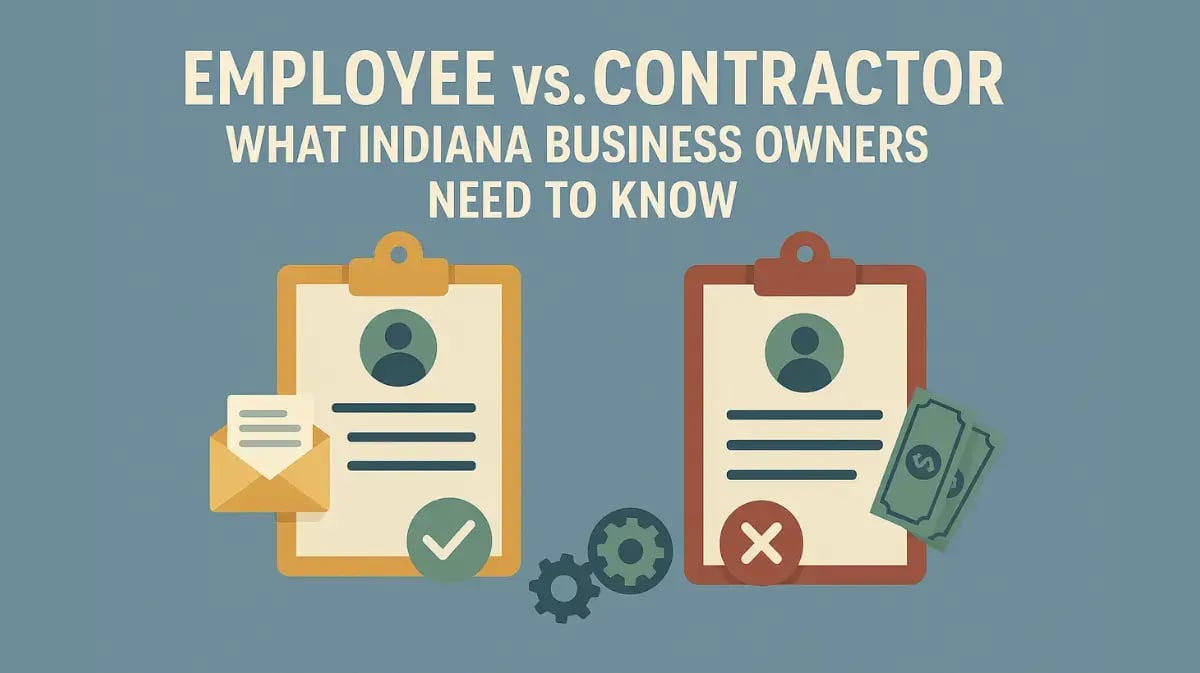

%20Early.webp?width=1200&height=673&name=5%20Consequences%20of%20Withdrawing%20from%20a%20401(k)%20Early.webp)

